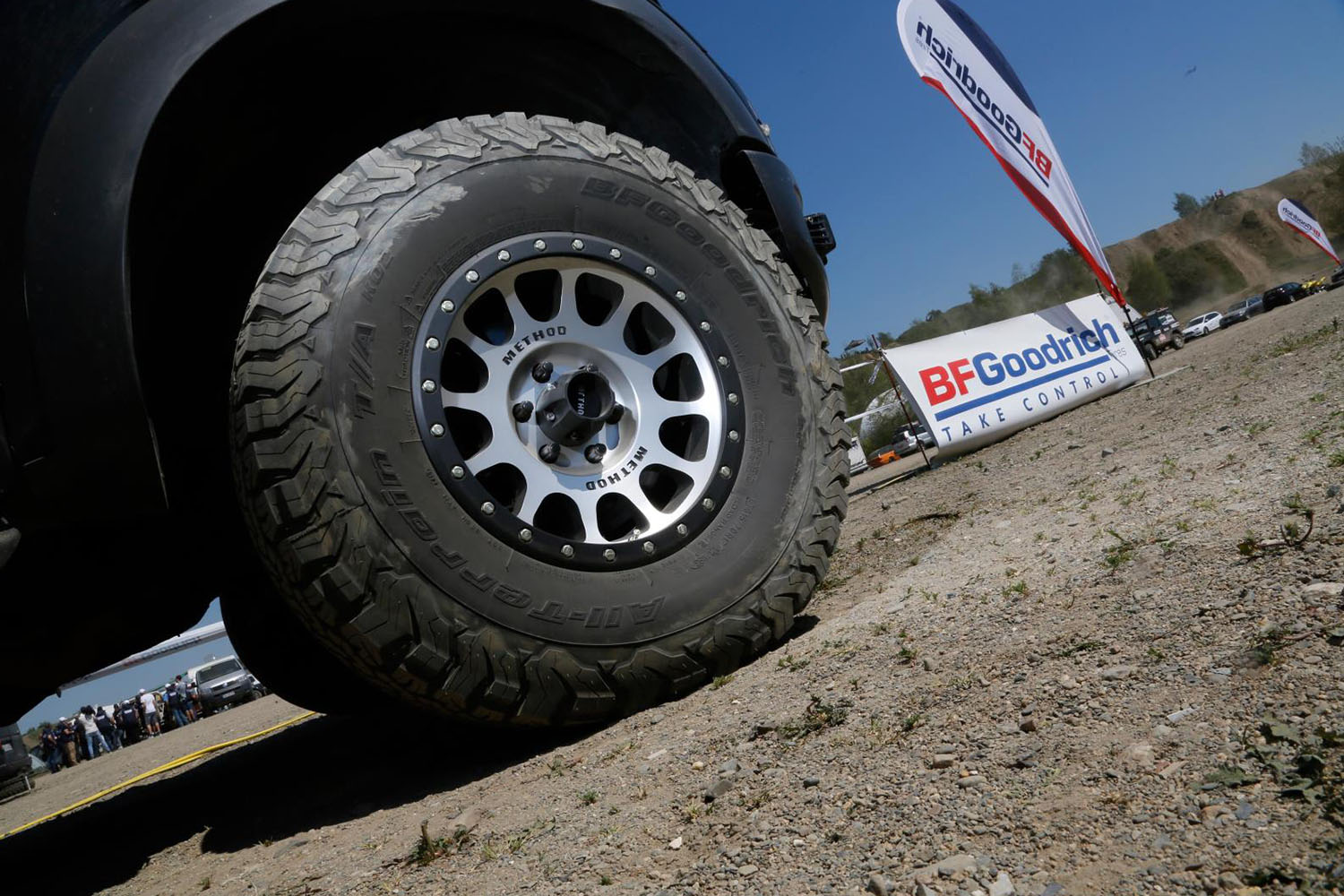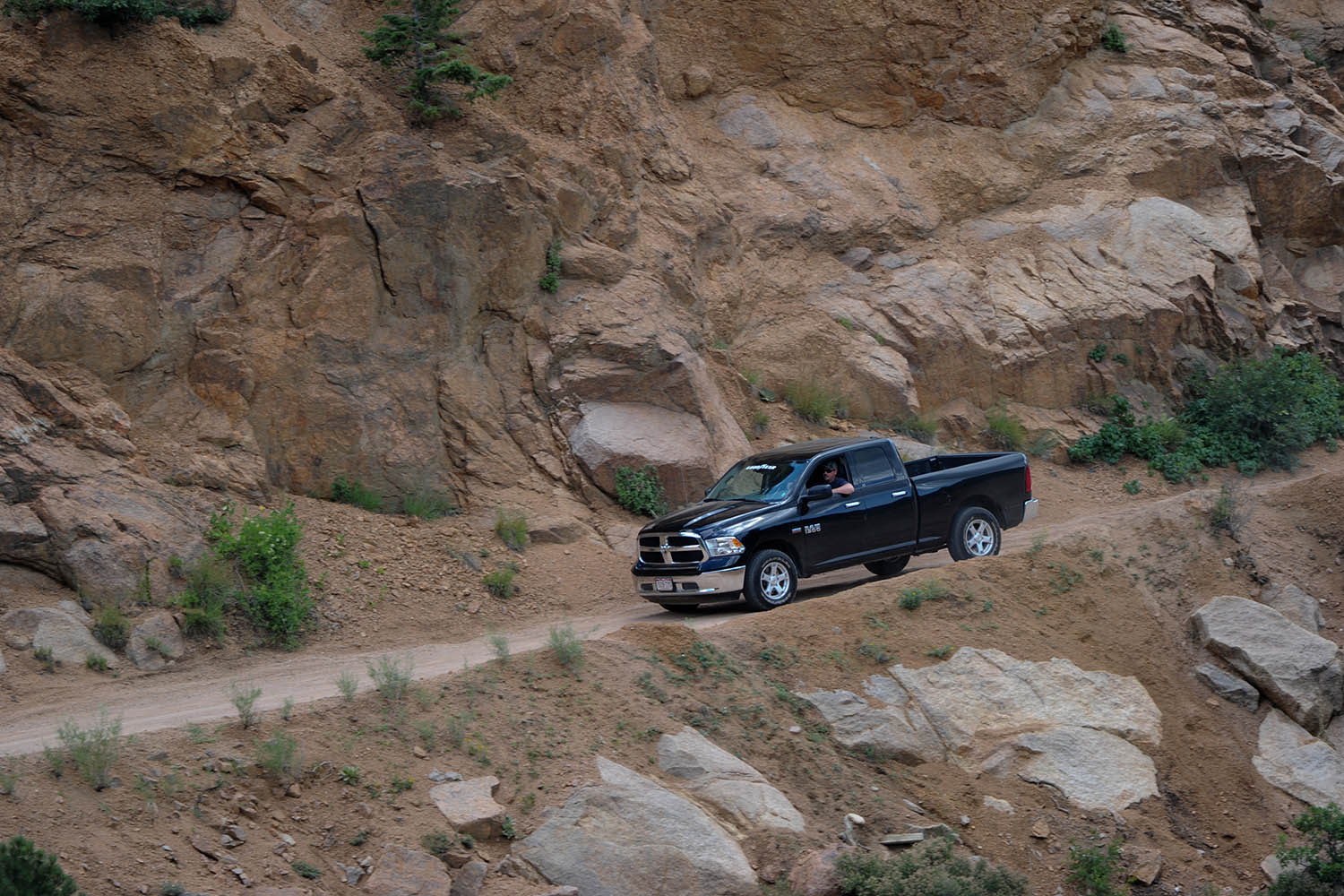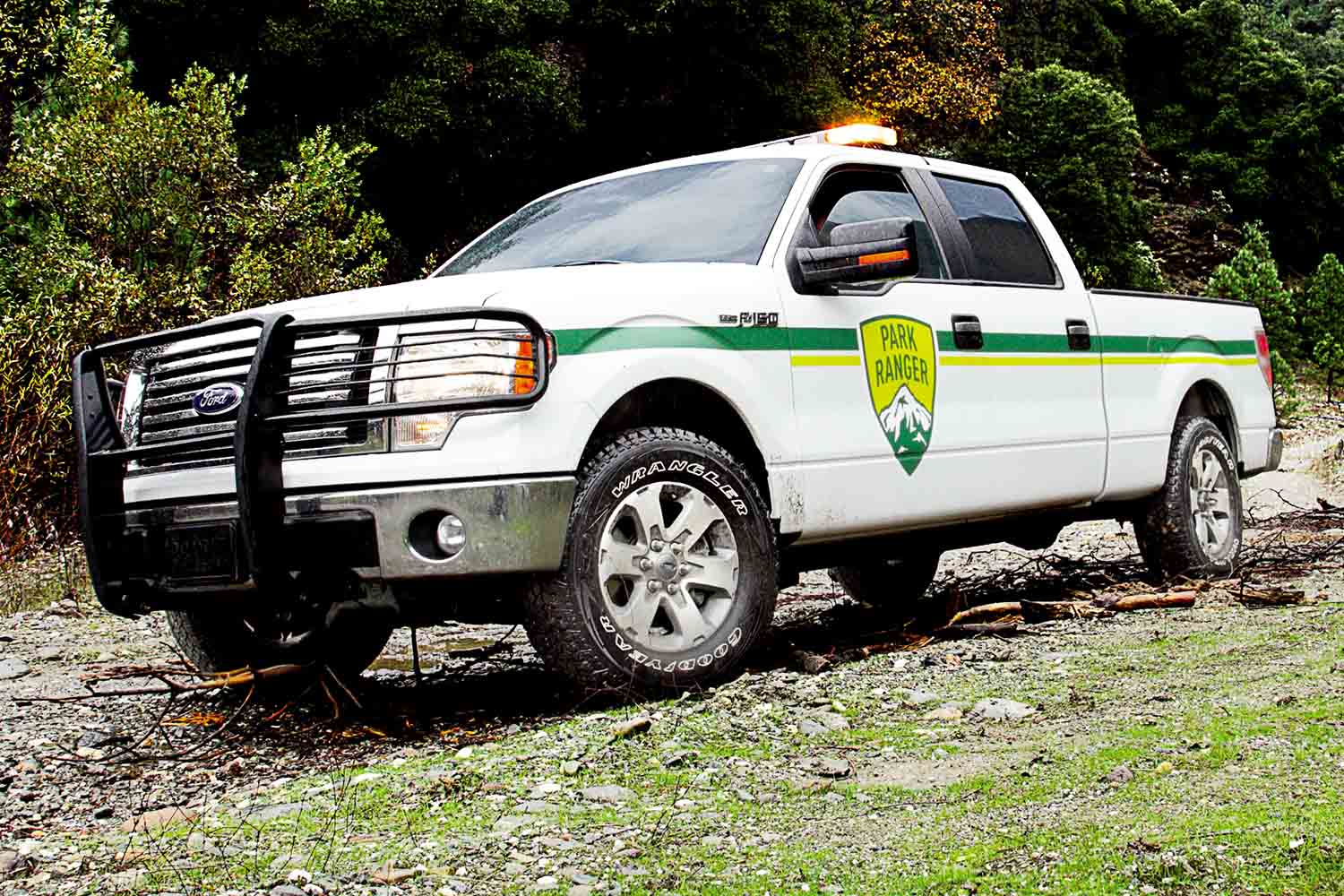Everything You Need to Know About All-Terrain Tires
Although "all-terrain" suggests these tires can go anywhere, they do have limitations.
 BFGoodrich
BFGoodrich
Article QuickTakes:
If you're looking to drive beyond where the blacktop ends, you'll be asking your typical all-season tires to tackle a set of elements outside their design parameters. So if your internal compass is frequently pointing off-road, a set of all-terrain tires could be right for you.
 BFGoodrich
BFGoodrich
What Is an All-Terrain Tire?
An all-terrain tire is designed to offer traction and durability on surfaces that you wouldn't encounter on a paved road. This includes loose sediment such as gravel, dirt, mud, sand, and grass, as well as rocks and wet terrain. All-terrain tires feature a blocky tread pattern that's not only engineered to grip those unstable surfaces, but also self-clear debris in the tread for continued traction. All-terrain tires generally have tall, reinforced sidewalls that are designed to resist punctures from rocks and other sharp objects encountered off-road.
 Goodyear
Goodyear
How Long Do All-Terrain Tires Last?
Like any tire, the life of an all-terrain tire depends on a number of factors, including the manner in which it's driven. But don't expect an all-terrain tire to last as long as a typical all-season tire. All-terrain tires are composed of a different, often softer, rubber compound that offers grip on loose surfaces at the expense of longevity. Many tires come with a mileage warranty from the manufacturer. Use that as a general guide, but expect that number to be a best-case scenario. The popular BFGoodrich All-Terrain T/A KO2 comes with a 50,000-mile warranty, and Goodyear offers a 60,000-mile warranty on its Wrangler All-Terrain Adventure With Kevlar.
 Goodyear
Goodyear
How Is an All-Terrain Tire Different From an All-Season Tire?
A typical all-season tire is engineered for on-road use in a wide range of temperatures and weather conditions, including rain and light snow. It's geared toward offering the most traction on paved surfaces while still prioritizing ride comfort and keeping road noise in check.
An all-terrain tire is designed for temperature swings and on-road grip too, but it's also built to offer traction over those aforementioned "off-road" surfaces and elements. The sacrifice for this off-road ability is typically a stiffer ride from the reinforced sidewalls, an increase in road noise from the blocky tread pattern, a shorter lifespan, and potentially a slight decrease in fuel mileage.
 BFGoodrich
BFGoodrich
Are All-Terrain Tires Good in the Snow?
All-terrain does not mean all-climate or all-surfaces. While most all-terrain tires now carry the "Severe Snow Service" designation (denoted by the three-peak mountain snowflake symbol on their sidewall), that only indicates their increased traction in snow compared with all-season tires. All-terrain tires are useful in deep snow, but they don't offer nearly the same traction and grip as a proper winter tire over slush and ice. Where there's snow, there's almost always ice, and ice traction is not part of the Severe Snow Service rating test. To tackle snow and harsh winter weather, dedicated snow tires will perform better than all-terrain tires.



